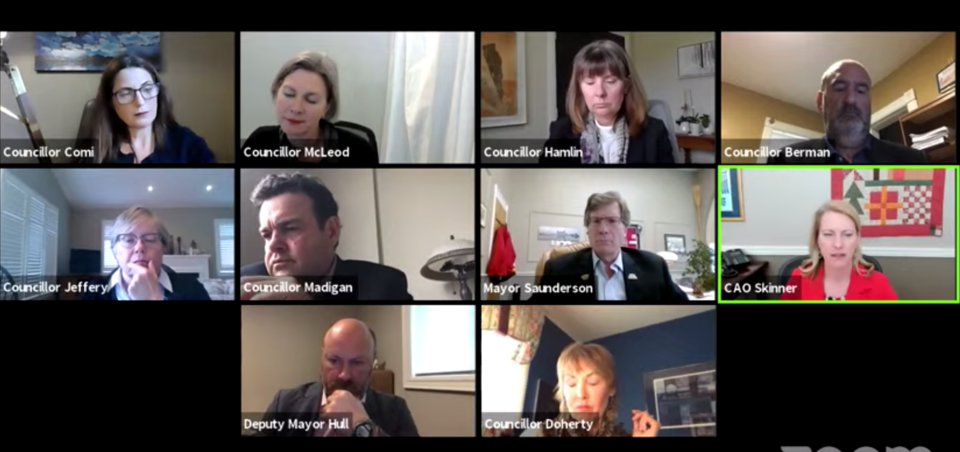Collingwood's town council, elected in 2018, is entering the final year of its four-year mandate. The next municipal election, slated for Oct. 24, 2022, is less than one year away.
With that in mind, we canvassed Mayor Brian Saunderson, Deputy Mayor Keith Hull and all seven city councillors to answer six key questions heading into the home stretch of their tenure.
They were given a limit of 150-words per response. Their responses are published verbatim.
Coun. Steve Berman, Coun. Bob Madigan and Mayor Brian Saunderson declined to participate.
Click here to read their answers to our first question. Click here to read their answers to our second question and here for answers to the third question.
What has been your greatest learning experience from governing during a pandemic?
Deputy Mayor Keith Hull
“With every challenge, there is opportunity. At the outset of the pandemic the mayor established a COVID-19 Task Force to look at ways the municipality and community as whole could economically weather the storm of the pandemic. The task force was chaired by Mr. Foster Williams, a relative newcomer to our community. Foster and the other members of the task force that represented a diverse cross section of the community worked hard to establish a tool kit for council and staff’s consideration should it be necessary. I think the majority would agree that Collingwood fared economically much better than other parts of the province and therefore (thankfully) we did not need to implement many of the recommended tools, but nonetheless it was inspiring to be part of this team and the experience and takeaways for me are immeasurable. To the task force members – Thank you.”
Coun. Tina Comi
“Think long and hard about who you vote for.”
Coun. Deb Doherty
“I would say my biggest learning experience has been the degree to which the municipality – not just Collingwood, but any municipality – has had to be able to act quickly and decisively in order to respond to the needs of the community, perhaps even more expeditiously than any other level of government. Here I am thinking about the Economic Recovery Task Force, or the downtown patios bylaw as examples of rapid and, in my view, successful responses to a catastrophic situation. As it happens, I believe the town has fared better than many others in protecting its residents and its economic base from financial disaster.”
Coun. Yvonne Hamlin
“That pivoting means more than setting up staff in home offices where possible and embracing Zoom technology. It means turning one’s attention totally around and noticing that those who are the most important to keeping our community and local economy running, need our help. For example, help to find housing that they can afford to live in, and mental health and other supports if needed.
I speak of the legion of people working as retail and hospitality staff, small business owners, PSWs, nurses, teachers, OPP recruits, front-line staff in non-profit organizations, and new graduates in every facet of our economy, to mention a few.
I have focused on being an active member of our Affordable Housing Task Force as one way to keep these important people in our community and help them thrive.”
Coun. Kathy Jeffery
Did not submit a response to this question.
Coun. Mariane McLeod
“I have learned that people will find a way to get done what needs to be done. For example, I belong to a volunteer group that is working to attract and train more women candidates for municipal office in Grey and Bruce Counties. (Shameless plug: here’s the website: electhernow.ca. We have an event early next month!) It started with about a dozen of us, some elected, some not. We have still never met in person, but we have found a way to reach out and teach, network, plan, help, and advise (and hopefully change the world).”
